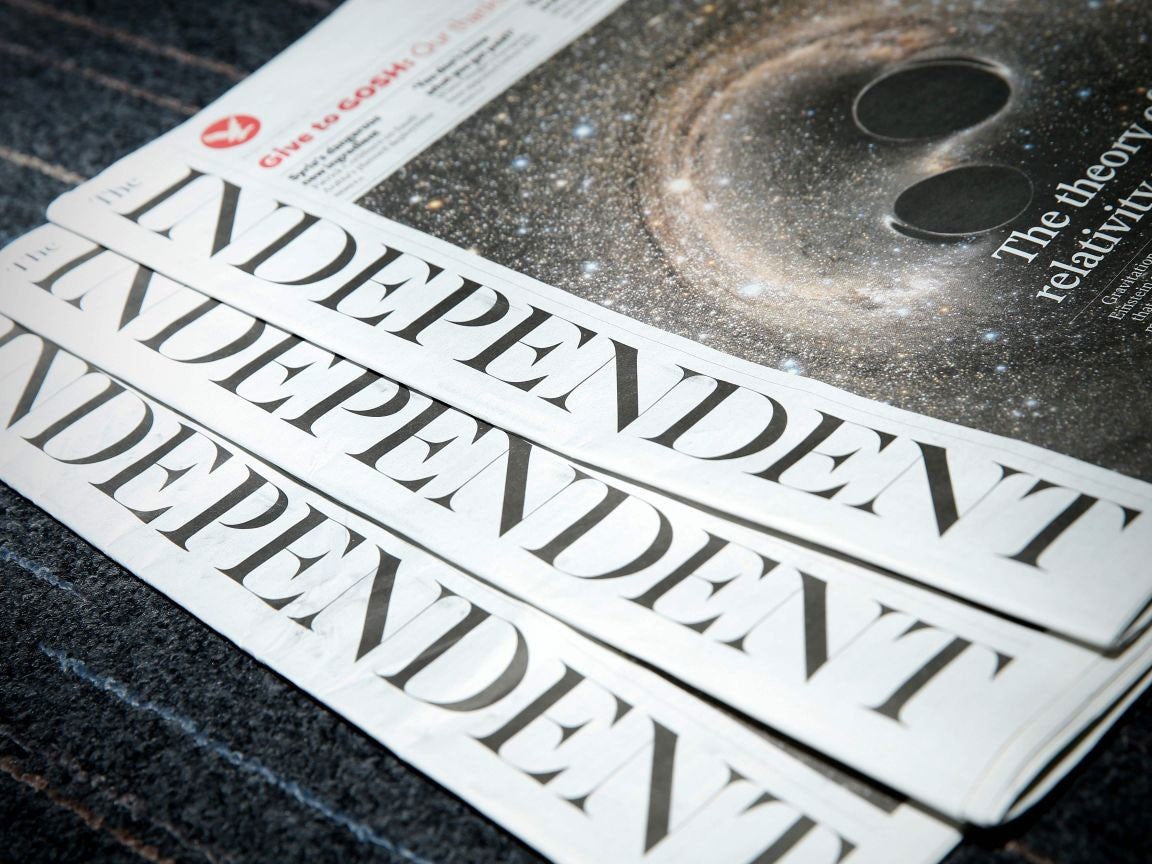Your support helps us to tell the story
From reproductive rights to climate change to Big Tech, The Independent is on the ground when the story is developing. Whether it's investigating the financials of Elon Musk's pro-Trump PAC or producing our latest documentary, 'The A Word', which shines a light on the American women fighting for reproductive rights, we know how important it is to parse out the facts from the messaging.
At such a critical moment in US history, we need reporters on the ground. Your donation allows us to keep sending journalists to speak to both sides of the story.
The Independent is trusted by Americans across the entire political spectrum. And unlike many other quality news outlets, we choose not to lock Americans out of our reporting and analysis with paywalls. We believe quality journalism should be available to everyone, paid for by those who can afford it.
Your support makes all the difference.The idea that the world wide web is a kind of information Wild West has become something of a cliché. There is a degree of truth in it. If you already know the answer you’re looking for, the chances are you’ll be able to find it somewhere online: the internet has been a boon to conspiracy theorists. On the other hand, the internet will lead you to questions you would not otherwise have asked.
In this context, it is arguably more important than ever that mainstream news outlets adhere to high ethical standards. It is by being a touchstone of reliability that our journalism can stand out online amid the morass of sometimes dubious shoutiness.
Insofar as The Independent is concerned, its digital offerings play to the same rules and regulations as the print newspaper, and those guidelines will not change when the paper edition ceases. The industry-wide Editors’ Code of Practice and our in-house Code of Conduct (both publicly available) set out our editorial expectations.
Yes, the web is a different beast: we have more space; our audience is broader; the way readers approach a website or social media app is intrinsically different to the way they approach a newspaper. And while a print product is bought either by regulars or occasionally because of a noteworthy front page, news websites can draw huge and varied audiences by promoting individual articles on social networks.
Twitter and Facebook are the billboards of the digital world, and are much more flexible than their old-style counterparts. They are a vital element of The Independent’s online existence.
Yet, in the quest to encourage more digital readers to The Independent’s content, we remain mindful of the ethical boundaries that have always governed good journalism. Ideas are dismissed or material modified if publication would otherwise breach the standards we set for ourselves. Do we get things wrong online? Occasionally; but that is the nature of all news publishing, whatever the medium. Those who nod sagely and say “Ah yes, but that piece wouldn’t have made the paper” are barking up the wrong tree.
Just as it can in print, so what we do online can further the liberal values of justice and compassion which The Independent has always stood for. Think, for instance, of the mark made by The Independent with its coverage of the death of Aylan Kurdi. The front page of the print edition was undoubtedly memorable, but our stance had been set the previous day by urgent and decisive online coverage: those haunting images, unpixellated and prominent; a challenging report, extensively shared on social media; an editorial urging action (which appeared in print the next day); and a petition run in partnership with Change.org calling on the Prime Minister to change tack.
When international media wanted to talk to us about our decision to run the photograph that everyone now knows so well, it was in the context of our online journalism as much, if not more, as the way we handled the story in print.
In that example, as in so many others, difficult editorial decisions were taken with thought, discussion and reasoning. We believed the story needed urgently to be told, and told without hiding a horrid reality. But it wasn’t rushed, it wasn’t sensationalised and it was done for the right reasons, by news journalists whose metier might be digital but who are steeped in the Indy’s best traditions. Its ethos and ethics are not bound by pieces of paper. They will stay alive online.


Join our commenting forum
Join thought-provoking conversations, follow other Independent readers and see their replies
Comments